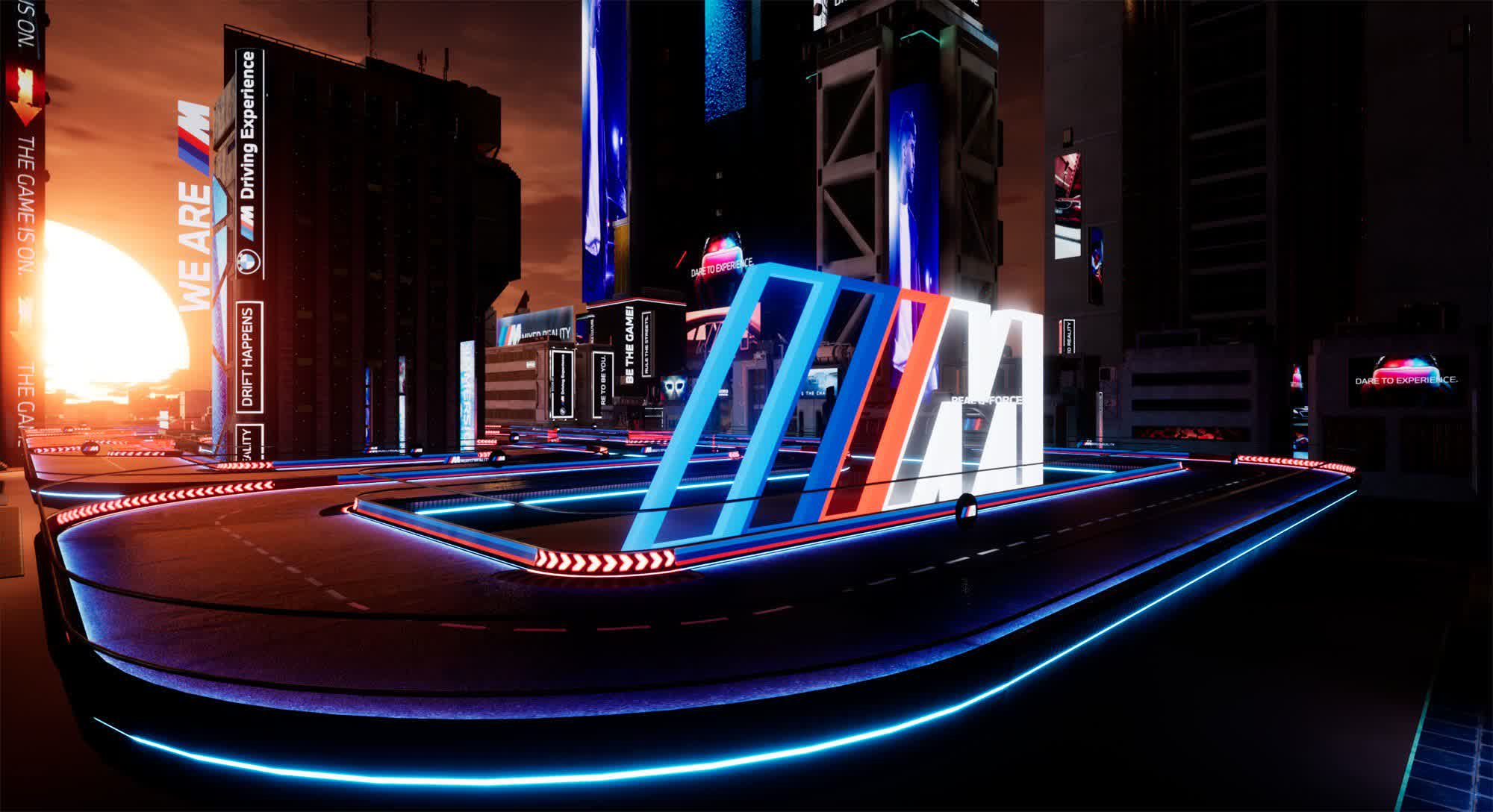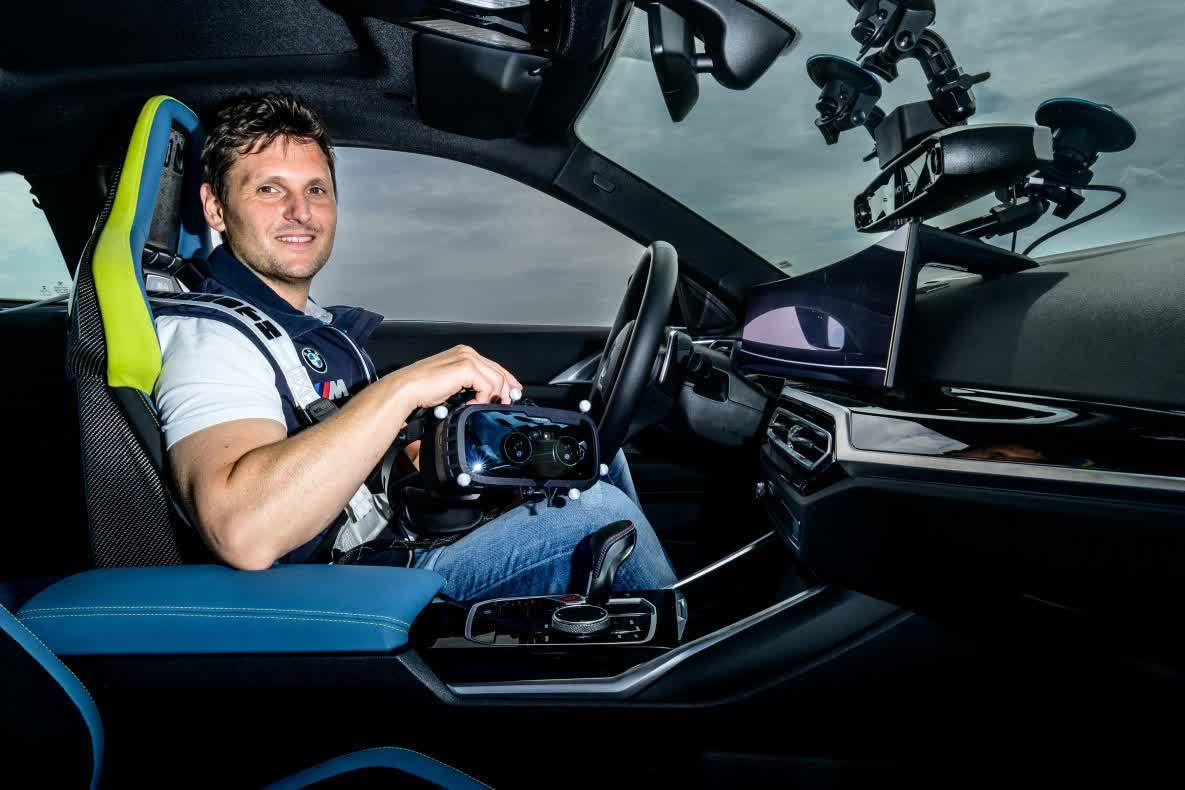WTF?! Virtual reality headset support is becoming standard in PC racing simulators, and Gran Turismo 7 is one of the most highly-regarded PlayStation VR 2 games. Still, none of them let you play while driving a real car--until now. BMW has begun allowing customers to do exactly that on a Munich training course.
Reservations are now open for BMW M Drift, a mixed-reality experience allowing customers to race on a virtual course while driving an IRL sports car. The simulation combines a VR headset with a BMW M4 on a prepared route.
For €660 (around $725 US) per person, participants spend half a day at the BMW M Driving Academy Maisach in Munich, Germany, driving four laps on a drifting course while wearing the headset, which projects either an alien planet or a futuristic urban environment around the car. A GPS signal and multiple sensors accurately track the positions and movements of the car's accelerator, brake pedals, tires, and driver to reproduce them in the virtual world.

English and German language sessions are available in January, February, and March. Before allowing drivers to don the headsets, sessions begin with a short training course to teach participants drifting and familiarize them with the BMW M4.
The company suggests the experience could become a springboard to use the technology in other ways like production planning and car development. While BMW chose the M2 and M4 as test vehicles, the company says it can adapt the technology to other models, including electric cars, because it works independently of the drive model.

While the BMW M Drift represents a new level of digital integration, the company has been experimenting with advanced infotainment for some time. Earlier this year, the BMW i5 became the first model to allow passengers to play local multiplayer games on the dashboard screen while the car is stationary. For higher-end 7-series vehicles, BMW has teased massive 8K panoramic screens offering passengers a miniature movie theater.
Meanwhile, mixed (or augmented) reality has yet to find its moment, but tech giants are still trying to push the technology into mainstream acceptance. Ultrafast Wi-Fi tethering, which the FCC recently approved, could advance devices like the new Meta Quest 3, Apple's upcoming Vision Pro, or Samsung's rumored competitor.